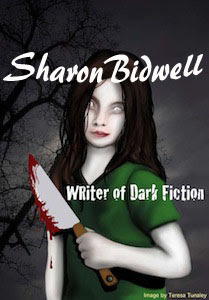To the person who left me a comment saying they may look like spam but assuring me otherwise, your site looks like...well, spam. You say you're not a publisher and yet you're making money selling free ebooks. This is an oxymoron. If you are selling books they're not 'free'. Secondly, you say you're not a writer so from where are you getting these books? Are you selling other people's free ebooks? If you're doing so without their permission you are in violation of copyright law. If you are buying ebooks and selling them on, you are in violation of copyright law. On both counts, I advise you to read the statement re copyright on this site. If you are doing something else that I don't understand, my apologies, but no, I'm not going to download your report file from a site that says little. For all I know, it could be a virus. I'd advise everyone else not to do so either. This isn't personal. I'm just being sensibly cautious. Sorry.
Look, copyright law on ebooks is simple. It prohibits the copy, distribute, resale or loan of an ebook. Saying that, most of us wouldn't object if we heard readers have made a backup copy purely for personal use. We live in a wonderful age of technology but technology fails us from time to time. We hear of someone selling our work and we'd like to come down on them like the proverbial tonnage. Writers and publishers are getting better at locating piracy sites and law enforcement are finally taking it seriously.
A common question is "If I can resell or loan a printed book, why can't I, as a reader, resell or loan ebooks?" To be honest, even the reselling or lending of some printed books is a grey area. However, it tends to be overlooked because of several reasons.
- Most people hate the idea of printed books being destroyed. If you're finished with them and cannot pass them on in some way they are only good for recycling.
- When a printed book is passed on, someone may find an author they like and start buying new books by that author on a regular basis. It's sort of free advertising and yes, one could argue this would apply to ebooks but a major difference and reason exists why this doesn't work so read on.
- Many second-hand books are sold for charitable purposes.
- The reader gives up the physical edition of the book and will no longer own it.
When you pass on an ebook (and some people do this in innocence not piracy but they are still in the wrong) the reader tends to 'keep' their version and simply send the file on, thereby making a 'copy'. This is as illegal in both electronic and printed works.
Imagine taking one of Stephen King's novels, dissecting it, scanning it in, printing it up either by POD, or via the printer at home, and trying to give it away, sell it, or hand to a friend. Should SK find out, do you think he wouldn't sue? Do you think he'd be flattered?
The point is no one is allowed to make a 'copy' of any written work be it printed or electronic. You may (usually) print off an electronic book for the purpose of reading it in that form should you not wish to read on screen, but that printed form is subject to the same laws. You may not sell it, or pass it on. If you wish to pass on an ebook the only viable way is to buy an extra copy, and what's so wrong with that? We all have people to buy presents for.
Oh...and to those who think they can file share their ebook library, has nothing I've stated sunk in? An individual's collection is NOT a library and even if it could be there is such a thing as the 'public lending right'. This means an author can if they wish, claim a small payment every time a library lends one of their books.
- You are not a publisher and the author has not signed a contract with you. You do not have the right to sell.
- You are not an official state library. You do not have the right to loan (and let's be honest -- loan in electronic format means copy and give away).
- You are not friends with thousands of strangers online that you simply 'must' lend your books to (and we've already established that you are not lending but copying) and authors and publishers will not turn their back on you 'giving' their work away.
